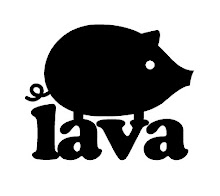 Dearest Umbra,
Dearest Umbra,Every winter I take pleasure in putting out birdseed to feed the backyard wildlife. I purchase the easily available, run-of-the-mill, found-at-my-local-hardware-store type of seed. My question is, in the big picture ... am I doing more harm than good? If the feed I am using is grown conventionally, am I doing a greater harm to the ecosystem as a whole? Or, on balance, is it better to provide free nosh to the locals?
Sincerely,
Rebecca in northwest Pennsylvania
Dearest Rebecca,
Bird feeders can be seedy hangouts.
A tiny conundrum. I could find no definitive study on this topic, so we must wing our way through the eco-thicket. I don't think the ecological impacts of birdseed production are so bad that filling feeders must cease. Hobbies that involve regular purchases of supplies will always have an ecological impact. Stuff has an ecological impact. You have to weigh the benefits within your conscience in this case, but let's go over some minutiae.
Wild birds can survive without human assistance (it's bird welfare, I tell you). Bird food is technically unnecessary, bird food -- sunflower seeds, millet, corn, etc. -- requires all the inputs of conventional agriculture, if people did not buy the bird food to begin with, then maybe water, pesticides (which might be harming other birds), fertilizers, fuel, and packaging would not be used to make the bird food ... hard not to conclude that you should stop buying bird food. I mean: you are doing more harm to the ecosystem than if you were not feeding birds. Except, maybe in your desperation for a hobby you would pick up drag racing, and if bird feeding were the only way to stop the drag-racing addiction, then bird feeding would be better.
There are potentially harmful impacts of bird feeding. One mentioned above is that birds could be harmed directly or indirectly during the growing of the bird food, through pesticides or habitat disturbance. Organic feed would potentially solve both impacts, but not certainly. If you're considering organic feed, it is available online, though an excellent study has concluded that birds do not prefer organic feed (by Danielle, a fifth-grader in Poughkeepsie, N.Y.). You can harm backyard birds by taking a slovenly approach to feeder maintenance and contributing to the spread of diseases such as trichomoniasis. Backyard feeders should be cleaned fortnightly with soap, water, and a weak bleach solution. Old, moldering food must be removed. Cats must be deterred from killing the birds, preferably by complete confinement within the home. Birdbaths should be emptied and cleansed daily (this will also stop mosquito breeding within).
Let's just finish up with a little more discussion of birdseed, because agriculture is fascinating. The basic, good birdseed is black-oil sunflower seed. Sunflowers are one of the only agricultural crops, and the only oil seed crop, native to what is now the United States of America. The seeds are used mainly for their oily properties, which are excellent -- mild flavor, high smoke point -- although they do also have "confectionary" uses, i.e., we eat them whole as snacks. Birdseeds are basically the almost lowest-quality oil seeds. We can thank the Russians for the current popularity of sunflower oil, as they developed the extra-oily varieties we use today. One more little tidbit: sunflower oil, which is also used in some biofuel mixes, contains energy content equal to 93 percent of the energy content of No. 2 diesel fuel. Zounds.
Confectionally,
Umbra
source: www.grist.org




No comments:
Post a Comment